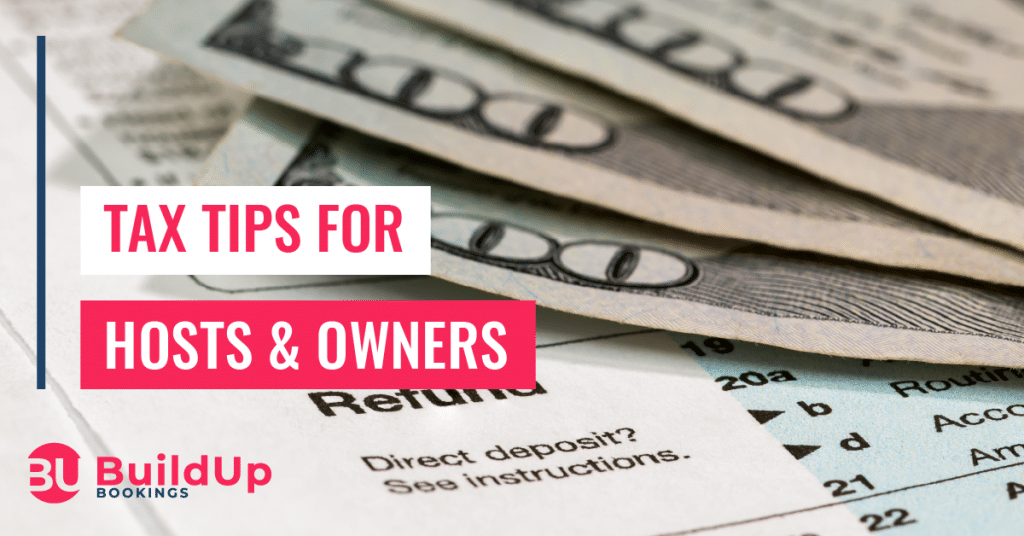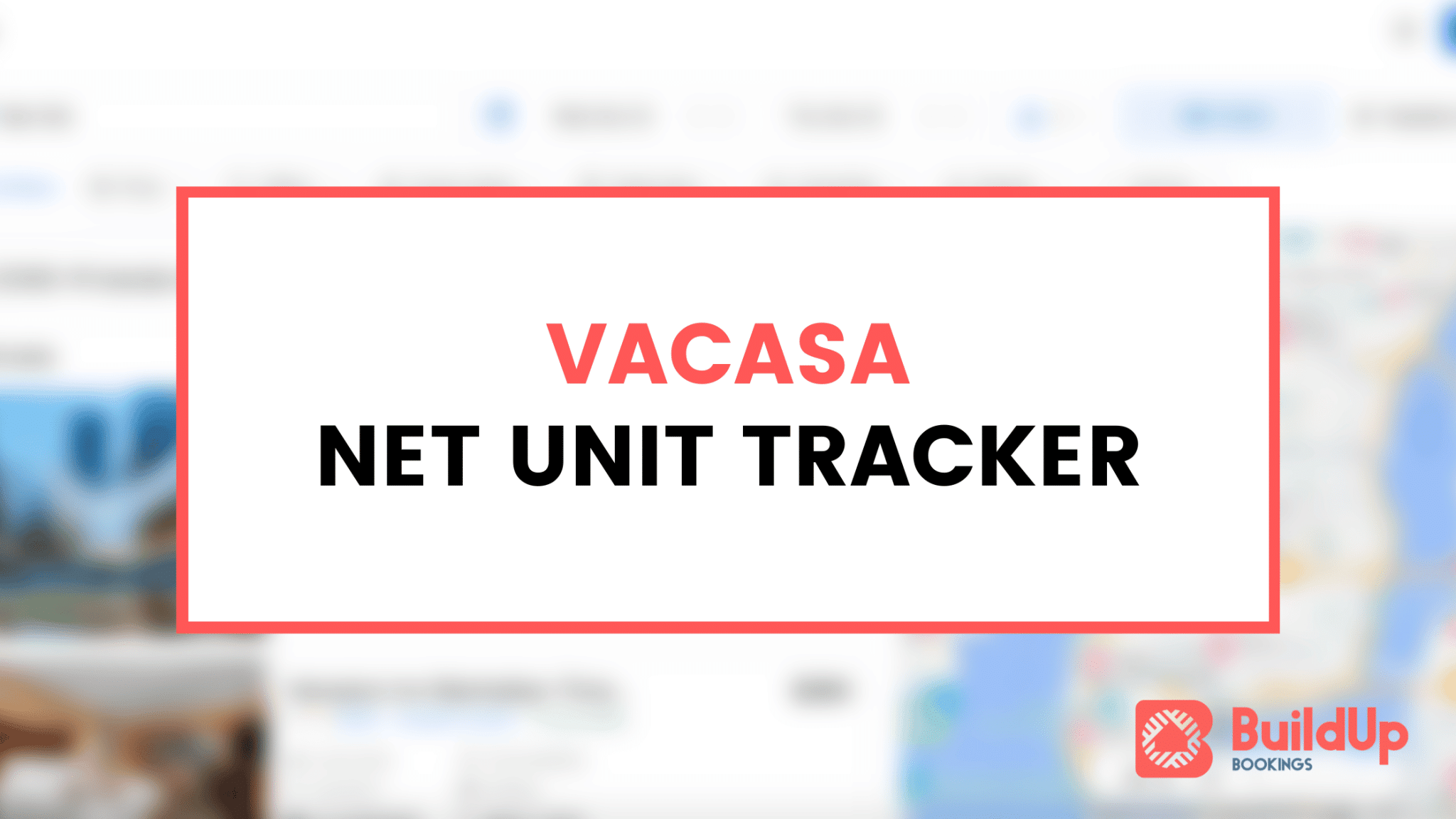We’re not tax professionals, speak to your CPA for advice for your situation.
– Conrad O’Connell

Running a successful vacation rental business can be rewarding and financially beneficial. Everyone loves to watch the profits come in, but remember the IRS is watching as well. If you rent out a room, house, apartment, or condo for more than 14 days in a year, you are required to pay taxes on that rental income.
Paying taxes, while not fun, is a sign that your business is doing well. That doesn’t mean you need to pay more than necessary.
We all know that it takes money to make money and the tax code understands the need for you to invest in your business to make it successful. While tax laws are constantly changing, there are some things you can do to help your tax professional save you money when tax time comes around. Keep receipts and records documenting everything you spend on your vacation home business.
There are many factors that determine how much and what types of expenses can be deducted and you want to provide your tax attorney or CPA as much information about your rental property business expenses as possible in order to keep your tax burden at a minimum.
Things You May Be Able To Use As Tax Deductions
You will want to speak with a tax professional to determine exactly which business expenses are tax deductible, but there are some basic things to keep in mind when you spend money on your vacation rental.
By keeping accurate records of your expenses as well as copies of receipts, invoices, and any other record of monies paid to improve or advertise your vacation rental, you will ensure the best possible results when income tax time rolls around. So what types of expenses can be used as tax deductions:
- Property insurance
- Private mortgage insurance (PMI)
- Mortgage interest
- Cleaning services and fees (this can include the cost of cleaning supplies like chemical cleaners, mops, brooms, etc…)
- Maintenance fees, including repairs to the home itself as well as furniture and appliances
- Service fees from hosting sites, such as Airbnb, Homeaway, Vrbo, etc…
- Utilities (electric, water, gas, cable, internet, wi-fi, etc…)
- Advertising and marketing
- Other professional services and rental expenses
14-Day Rule
If you want to avoid paying taxes on your short-term rental altogether, you need to be aware of the 14 day rule. Sometimes referred to as the Masters exception, due to its popularity during the Masters Golf Tournament in Georgia, the 14-day rule says that you don’t even have to report income earned on your vacation rental so long as you rent the property for 14 days or less and use the property for personal use at least 14 days during the year.
This may seem like an extremely restrictive rule but keep in mind, not everyone is looking for high occupancy. Some property owners are simply trying to mitigate the expense of keeping a second home, or even renting out their primary home to help pay for travel. For those that are not looking for high occupancy it may be beneficial to keep the number of days the property is actually rented to 14 days or less.
This rule works for rental rooms as well as other rental properties. Keep in mind that while you don’t even need to report this income, you also can’t take any deductions.
Taxpayer Identification Number (Form W-9)
Online listing services like Airbnb, FlipKey, Vrbo, etc… are required to withhold 28% of your gross rental income. This is more than likely a much higher percentage than your actual effective tax rate. By simply providing these companies a W-9 Form you can reduce this amount significantly.
This will increase your cash flow and allow you to use this money more effectively to grow your business. It’s your money – put it to work for you. File the W-9 as soon as possible.
Best Practices To Track Your Expenses
While you want to make sure you hold onto physical copies of receipts, invoices, bills, etc., it will make it much easier when filing your tax returns if you keep these documents organized by type and date.
Different people use different methods to keep these documents organized and it doesn’t matter if you use a file cabinet or a shoebox, you will be much happier at tax time if things are filed properly. In addition to physical copies, there is no shortage of software available to help you track your expenses and even keep digital copies of your documents.
If you prefer to keep your tracking customized, you can always build your own spreadsheet using programs like Excel or Google Sheets.
Beyond Income Tax
As always you will want to seek out the advice of a tax professional, but it is important to keep in mind that the IRS may consider you self employed if you are deriving income from a short term rental property.
If this is the case, you will be required to pay the self employment tax. This tax covers Social Security and Medicare contributions from your income when you are self employed. In addition to self employment tax, it is possible you will be required to pay occupancy taxes and other local taxes for your vacation rental property.
Check with your local municipality to make sure you are in full compliance with any tax laws.
The vacation rental business is no different than any other small business. Taxes and expenses are a simple fact of life and a good business pays its taxes, but a great business knows how to keep the tax bill as low as possible.
Your situation is unique to you and it is imperative that you employ the services of a tax professional when preparing your tax returns. The tax code is constantly changing and keeping up to date with current tax laws will help you keep your business as profitable as possible. Keep in mind that you want to hold on to every document regarding expenses relating to your rental property.
While some expenses may seem small at the time of purchase, those small expenses can add up to a considerable deduction when it comes time to file your taxes.
No matter what method you choose to track your expenses, it is important to be consistent and ensure that the documents are easy to find should you need to retrieve them. Taxes are certainly no fun, but paying taxes is a sign that your business is doing well and earning a profit.
Keep it as simple as possible to make tax season just a little easier!








